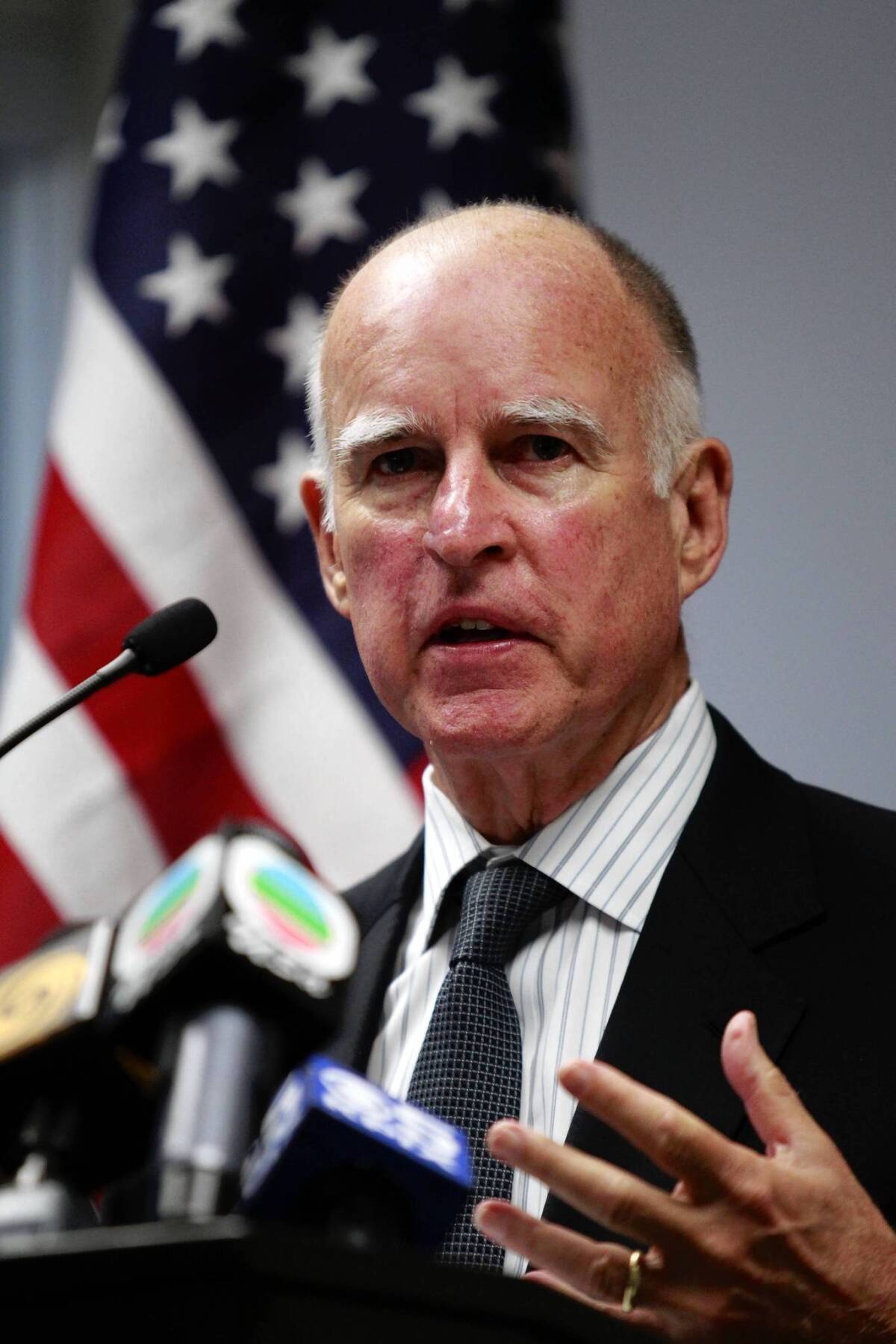Campaign finance bills fare poorly in California Legislature

- Share via
SACRAMENTO — After an anonymous $11-million donation from Arizona sent shock waves through California politics last year, the state Capitol seemed primed for new measures to tighten campaign finance rules.
But several proposals fell by the wayside as lawmakers finished their work last week. Bills that would have increased the power of California’s campaign finance watchdog, boosted fines for violations and forced greater disclosure of donors — among other measures — stalled in the Legislature.
Just one bill was sent to Gov. Jerry Brown’s desk, SB 3, by Sen. Leland Yee (D-San Francisco). It would require new training for campaign treasurers and mandate that officials study the possibility of replacing the state’s outdated website for tracking campaign finance information.
Lawmakers said they would revisit the topic when the Legislature reconvenes in January.
“We are disappointed we couldn’t get it done this year but optimistic we can get it done next year,” said Phil Ung of California Common Cause, which advocates more transparency and worked with lawmakers on some of the proposals.
It remains to be seen whether new rules could be put in place before next year’s June primary or even the November general election. Lawmakers would need to add urgency clauses, making sure any measures would take effect immediately if the governor signed them.
Many of the proposals are a response to the $11-million donation sent from a little-known Arizona nonprofit group to a California campaign committee. The committee was working against Brown’s tax-hike plan and in favor of a separate measure intended to curb unions’ political power.
Facing legal pressure, the group revealed that it had received the money from two other organizations, one in Arizona and the other in Virginia — both nonprofit groups that also didn’t reveal their donors.
State authorities have continued to investigate, labeling the successive contributions as campaign money laundering.
Assemblyman Roger Dickinson (D-Sacramento), who wrote one of the stalled bills, said he believed the momentum to strengthen campaign finance rules wouldn’t fade next year. The 2014 elections will include a governor’s race, key congressional elections and another round of ballot initiatives, among other contests.
“There will be a heightened sense of a need to act,” Dickinson said. “We’re going to see more and more of those huge contributions otherwise.”
The effort to strengthen campaign finance rules this year was complicated by vacant seats in the Assembly that, for several months, left Democrats one vote short of a supermajority. Special elections this month are expected to restore it.
Changing the Political Reform Act, the foundation of California’s campaign regulations that was approved by voters in 1974, requires a two-thirds vote.
One bill that was brought to the Assembly floor last week, AB 800, by Richard Gordon (D-Menlo Park), would have increased the power of the Fair Political Practices Commission by making it easier for the panel to investigate campaign finance violations before an election is over.
The measure fell one vote short when it couldn’t win any Republican support.
Republicans said they were opposed because of the controversy over IRS inquiries into political groups.
“Unfortunately, we’ve seen the government on the federal level … abusing some of its investigative powers,” said Assemblyman Donald Wagner (R-Irvine). “There may be a time where our public has enough faith in our government entities to grant the type of power that is being discussed here. I don’t think we are there right now.”
Ann Ravel, chairwoman of the Fair Political Practices Commission, said she was disappointed the bills did not get bipartisan support.
“It can have an impact on candidates no matter what party they’re in,” she said.
Democrats said they planned to win the vacant seats, both in heavily Democratic districts, and renew the push for new rules.
“I think when we come back in January, and have a two-thirds majority in both houses, we’ll have the ability to move forward on that legislation,” said Assembly Speaker John A. Pérez (D-Los Angeles).
More to Read
Sign up for Essential California
The most important California stories and recommendations in your inbox every morning.
You may occasionally receive promotional content from the Los Angeles Times.















